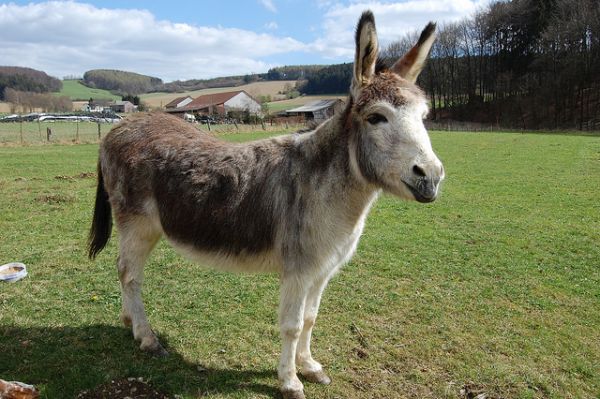Donkeys are territorial animals and are not necessarily protective of the herd as much as they are protective of their territory and themselves. They do not patrol the pasture but rather feed and socialize with the stock until a threat appears. With their large ears and a wide range of vision, donkeys are alert while grazing yet are less spooky and skittish than horses, making them more likely to stand their ground and confront a threat.Ideally, a guard donkey is a jenny (a female) or a gelded male who is introduced to a flock of sheep or goats while still a foal. The donkey grows up seeing the other animals as members of its family.
Dohner says donkeys are instinctively aggressive toward canines, and are capable of dishing out crushing blows with both their front and hind legs as well as using their large teeth to bite raiding intruders.
Welcome to ...
The place where the world comes together in honesty and mirth.
Windmills Tilted, Scared Cows Butchered, Lies Skewered on the Lance of Reality ... or something to that effect.
Windmills Tilted, Scared Cows Butchered, Lies Skewered on the Lance of Reality ... or something to that effect.
Sunday, December 14, 2014
Get a Guard Donkey Instead of a Guard Dog
You
may not think of donkeys as protective animals, but they can be
successfully trained to guard farms from small predators, such as
raccoons. Dogs can do this too, but donkeys will do the job without
barking all night. That’s why trainers like Jan Dohner advocate giving
them a chance to guard farms and flocks from nighttime threats. Tyler
LeBlanc writes in Modern Farmer:
Subscribe to:
Post Comments (Atom)


No comments:
Post a Comment